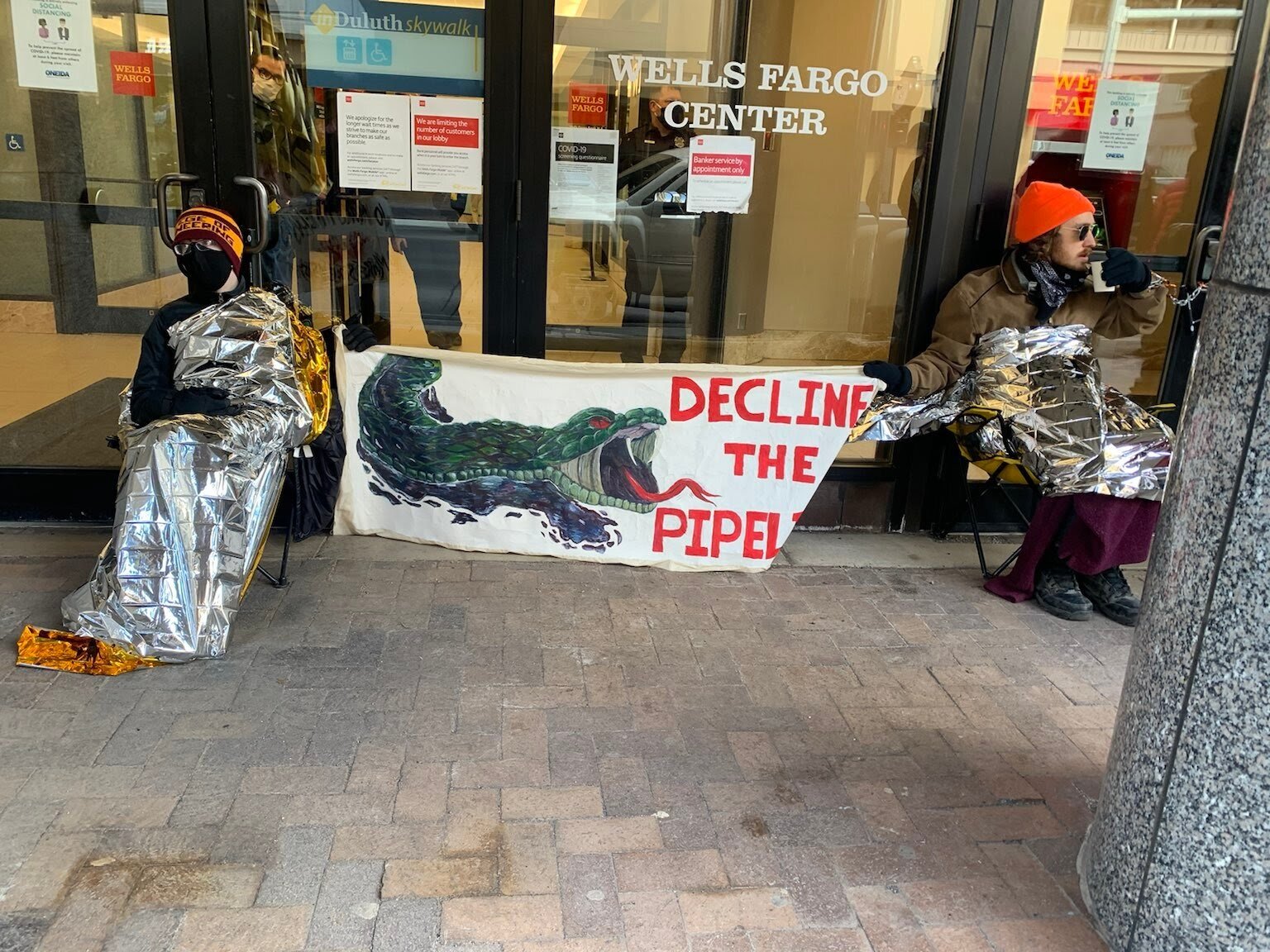Water Protectors Keep Up Pressure on Line 3 Funders in Duluth
(Duluth, MN) On Wednesday morning, Water Protectors marched through downtown Duluth to call out Wells Fargo’s investments in Enbridge’s Line 3 pipeline. Two people chained themselves to the front doors of the bank, shutting down the branch for nearly an hour. This is the second protest at this location this week, as opponents of the Line 3 pipeline escalate their opposition to the project’s financiers.
Protestors aim to challenge Wells Fargo’s investments in fossil fuel infrastructure, particularly the Line 3 pipeline. A report published last week by dozens of environmental nonprofits and research organizations identified Wells Fargo as the third greatest funder of fossil fuels among all banks. The movement to stop Line 3 is joined by organizations around the world in calling on banks and other financial entities to #DefundLine3 and all fossil fuel infrastructure.
Alex Golden-Wolf, a two-spirit Aninshinaabe water protector, shared why they joined today’s rally: “I am marching today because I want my fellow neighbors of Minnesota to know the environmental impact that this pipeline will have on them.” Margaret spoke at the protest, saying “I’m shutting down this bank to let Wells Fargo, and other banks profiting from extraction and colonialism, know that we won’t allow it to happen anymore. Line 3 violates treaty rights, threatens the land and the water, and must be stopped.”
This protest connecting fossil fuel investments to the Line 3 tar sands pipeline is yet another event in the growing movement resisting the pipeline. Since the Canadian energy transfer company Enbridge proposed the project in 2014, Indigenous communities and environmental organizations across Minnesota have resisted its permitting and construction. Although ongoing legal appeals have yet to be finalized in court, Enbridge was allowed to begin construction of the pipeline across Northern Minnesota in December of 2020. The movement is growing in numbers, and Indigenous-led direct action on the frontlines has delayed construction every week since it began.
